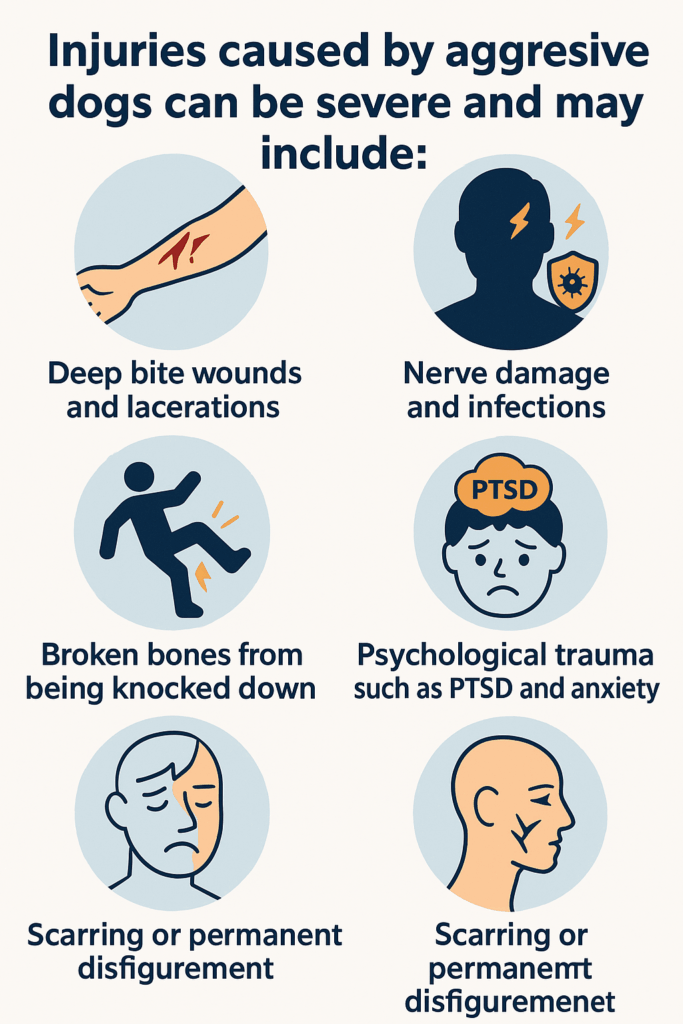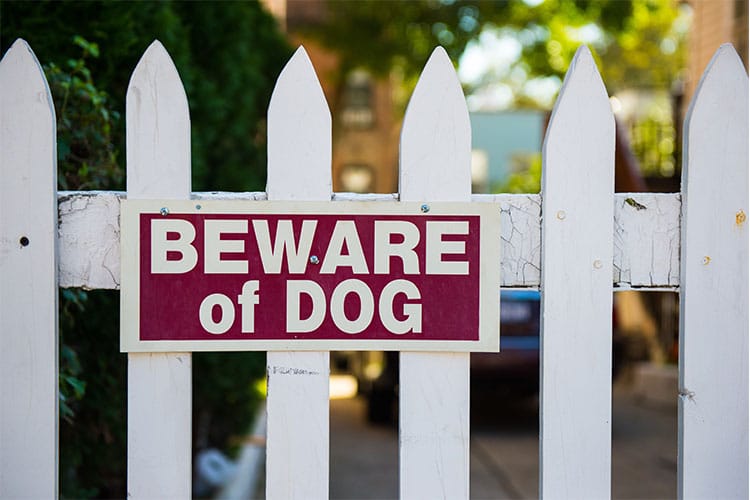
Dog attacks in Arizona are more common than many people realize. The United States Postal Service reports that dog attacks on workers in the state jumped nearly 30% in 2024 compared to 2023. Arizona now ranks 17th in the nation for postal worker attacks, with 75 incidents reported, 25 of them in Phoenix alone. It’s daunting to imagine that a routine day can quickly turn into an emergency, both for the person bitten and for the dog’s owner.
Arizona dog bite laws take these risks seriously. Unlike some states that follow a negligence-based approach, Arizona imposes strict liability on owners when their dog bites someone. That means victims do not have to prove that the dog was known to be aggressive, while owners face direct responsibility any time their dog causes injury under the conditions set by law.
This article breaks down what Arizona dog bite laws actually say, how liability works, and what both victims and owners need to know after an attack.

Arizona follows a strict liability rule when it comes to dog bites.
Under A.R.S. § 11-1025, a dog owner is responsible if their dog bites someone, regardless of the animal’s past behavior or the owner’s knowledge of any aggression. Unlike negligence-based states such as Georgia, victims in Arizona do not need to prove that the owner carelessly managed the dog. Liability attaches simply because the bite occurred under the conditions set by law.
For a dog bite claim to move forward, a few key conditions must be met:
Arizona law also makes clear that the breed of the dog cannot be used as evidence of aggression or viciousness. The focus is on the incident itself, not the type of dog involved.
In addition, A.R.S. § 11-1020 extends owner responsibility to situations where a dog is “at large.” If a loose dog causes injury to a person or damage to property, the owner (or anyone responsible for the animal) is fully liable for those damages. This provision emphasizes that owners must keep their dogs properly restrained and supervised to avoid liability.
There are exceptions for dogs working in military or police settings. If the dog bite occurred while assisting an officer with tasks such as apprehending a suspect, investigating a crime, or defending a peace officer, the government agency may be shielded from liability.
However, this protection does not apply if the person bitten was not involved in the situation that prompted the dog’s use.
This approach simplifies the path for victims seeking recovery, since they do not need to prove negligence, but it also places heavier responsibility on owners to control and secure their dogs at all times.
Arizona’s dog bite statute removes much of the debate that complicates cases in other states. Instead of leaving victims to prove what the owner knew or should have done, the law sets out a clear framework:
And here’s how Arizona’s laws differ from the negligence-based systems used in other states:
| Strict Liability in Arizona | Negligence-based Laws (Other States) |
| Owners are automatically responsible if their dog bites someone in a public place or lawfully on private property, regardless of prior behavior. | Victims must prove the owner was careless (for example, by letting the dog roam loose or ignoring known aggression) before liability applies. |
Arizona basically makes it easier for victims to recover while placing a stronger duty on owners to prevent incidents in the first place.

Even with Arizona’s strict liability statute, dog owners do have one key defense: provocation. Under A.R.S. § 11-1027, if the injured person’s behavior would reasonably be expected to provoke a dog, the owner may not be held liable for damages. The standard is based on what an ordinary person would view as provoking behavior, not on whether the individual intended to upset the animal.
Some common forms of provocation may include:
However, provocation is still judged by circumstances. What counts as provoking for an adult may not be the same for a child, since children are less likely to understand how their actions could trigger a dog’s defensive instincts.
Arizona law also clarifies that a dog’s breed cannot be used to determine liability or aggression (A.R.S. § 11-1025(B)). Instead, courts focus on the specific circumstances of the bite and the behavior of both the victim and the animal.
For police and military dogs, there are limited exceptions. If a bite occurs while a service animal is performing official duties, such as apprehending a suspect, executing a warrant, or defending an officer, then liability generally does not apply, unless the victim was not involved in the incident that prompted the dog’s use (A.R.S. § 11-1025(C–D)).
Dog bite cases in Arizona move quickly under strict liability rules, and both victims and owners need to understand what the law requires. If you or your dog were involved in an incident, don’t wait to get answers.
Contact Thompson Law’s dog bite lawyers today for a FREE CONSULTATION and learn how to protect your health, your rights, and your future.

Arizona dog bite laws use strict liability. Owners are responsible if their dog bites someone lawfully on public or private property, even on the first bite, without proof of negligence.
No. Under A.R.S. § 11-1025, victims do not need to prove negligence. Liability exists as soon as the bite occurs, provided the victim was not trespassing or provoking the dog.
Arizona law defines provocation as behavior that would reasonably cause a dog to react defensively, such as teasing, tormenting, or threatening the animal. Whether conduct is provoking depends on the circumstances, especially when children are involved.
Compensation may include medical expenses, lost income, pain and suffering, psychological counseling, and long-term care if needed. Victims may also seek damages for scarring or permanent disfigurement.
The statute of limitations for most Arizona dog bite claims is two years from the date of the bite. Claims against government entities have shorter deadlines, sometimes as little as six months.
Yes. Arizona law provides limited exceptions for dogs working in official police or military roles. However, if the person bitten was not involved in the incident that triggered the use of the dog, liability may still apply.
Arizona dog bite laws use strict liability. Owners are responsible if their dog bites someone lawfully on public or private property, even on the first bite, without proof of negligence.
Sí. Hablamos español. Ofrecemos asistencia bilingüe para que las víctimas de mordidas de perro en Arizona entiendan plenamente sus derechos.
Contact Thompson Law’s dog bite lawyers today for a FREE CONSULTATION!






Thompson Law charges NO FEE unless we obtain a settlement for your case. We’ve put over $1.9 billion in cash settlements in our clients’ pockets. Contact us today for a free, no-obligation consultation to discuss your accident, get your questions answered, and understand your legal options.
State law limits the time you have to file a claim after an injury accident, so call today.